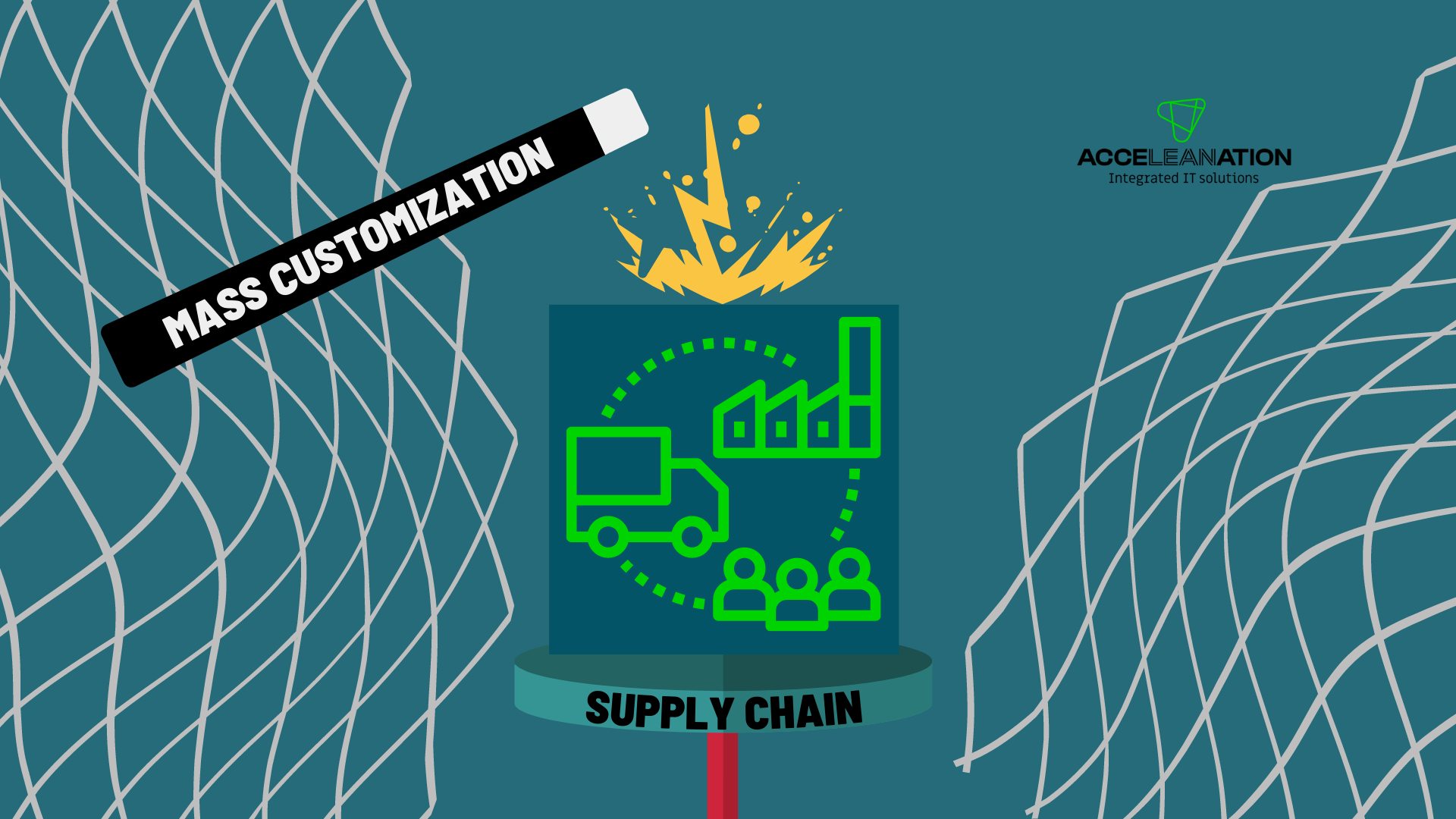Mass customization (MC) isn’t the future of manufacturing. It’s here now. And it’s here to stay. Companies like Adidas, Nike, Mattel, and Daimler AG have all deployed MC strategies designed to take advantage of mass customization. They consider it the New Frontier in manufacturing. And why not? The benefits of adopting this made-to-order strategy are compelling. Mass customization promises huge gains in efficiency, customer satisfaction, agility, uptime, and profitability.
Research from Aberdeen indicates that companies employing mass customization see a 62% savings reduction relating to the cut in production downtime. With results like these, it’s no surprise that more and more manufacturers are adopting MC strategies. MC is a game-changer—a strategy that can help take your company to the next level. But just updating ERP software solutions won’t produce an effective MC strategy. You also need to boost supply chain performance to meet the demands of this strategy.
Four Types of Mass Customization
Mass customization uses standardized and scale economies to produce in-demand goods and services tailored to customers’ needs. Ford Motor Company, for example, allows customers to build vehicles from a menu of online options. BMW does something similar, claiming that no two of its cars are the same.
To execute an effective MC strategy, however, a company’s supply chain must be agile, lean, and speedy. It must also support the manufacturer’s type of mass customization. These include:
- Collaborative — This type of mass customization is appropriate for businesses whose customers find it hard to articulate their needs and don’t like to choose from a wide variety of options.
- Adaptive — Adaptive mass customization is ideal for businesses whose customers want a product to perform differently on different occasions using available technology.
- Cosmetic — This type of mass customization is well-suited for businesses that wish to use a product the same way each time but want to present the product differently on different occasions.
- Transparent — This type of mass customization is appropriate for businesses whose customer’s specific needs are predictable or can easily be deduced.
Each of these types of made-to-order manufacturing presents supply chain challenges to manufacturers—challenges that often require companies to reconfigure their supply chain to boost performance.
Beating Supply Chain Performance Challenges
Companies that overcome their supply chain challenges—and use other digital technology tools to their advantage, like ERP software—can increase competitiveness and accelerate growth. However, manufacturers need supply chains configured to work at the speed their customers expect to capture these benefits. That, in turn, can create operational disruptions for manufacturers initially.
But savvy manufacturers are finding strategies to reduce these disruptions. Product modularity (PM), for example, is one strategy companies employ to address these production disruptions. PM allows you to produce numerous product variants by stringing together a smaller number of standard parts. While PM works well, its implications go well beyond the economies of sharing parts across many product variants.
Product modularity, however, impacts not only the company’s value matrix but also its supply chain configuration. In short, it forces companies to reconfigure supply, production, and distribution networks to meet customer delivery demands. PM can also ease the outsourcing of production activities to suppliers, simplifying internal operations.
Supply Chain Configurations for Mass Customization
A past research paper presents a systematic view of implementing a mass customization strategy and supply chain performance. The paper looks at how a company must reconfigure its supply chain to support the degree of product customization and the speed of delivery manufacturers offer their customers—two critical MC success factors.
Empirical evidence in the form of case studies from different industries supports the research findings. These cases highlight the idea that the “freedom customers have in specifying product features, heavily affects the supply-chain configuration, as well as product architecture and, ultimately, firm performances.” That, in turn, impacts supply chain performance
The paper identifies two basic supply chain configurations available to manufacturers. The “Hard” Mass Customization configuration features a high level of customization and yields thousands of potential variants, if not more. The “Soft” Mass Customization configuration features a moderate level of customization and results in a few dozen to a few hundred variants.
Recently, a new supply chain option has emerged. The high-speed bespoke supply chain model provides the delivery quickness and product customization companies need to succeed with mass customization. A function of the production of personalized products is that this supply chain’s value extends to additional applications, such as producing and fulfilling rare made-to-order goods. It also extends beyond manufacturing.
Mass Customization: Reshaping the Landscape
Mass customization’s success is reshaping the manufacturing landscape. The benefits this strategy provides are compelling. MC increases customer satisfaction and retention, lowers inventory levels, and boosts profitability. In addition, it supplies customers with unique products explicitly produced to meet their requirements. In short, MC blends the distinctive nature of custom products with an increased level of sales and production.
Although, implementing an MC strategy isn’t a snap. To do it successfully, manufacturers must integrate lean and agile supply chain models into their operations—a supply chain model built for speed, customization, and higher performance. These supply chains offer the promise of not only helping manufacturers meet stricter customer demands; they also provide accurate market intelligence by capturing demand signals directly from online customers. Exploring the New Frontier of mass customization can build market leaders.
Is implementing a mass customization strategy a challenge? Don’t go at it alone. Acceleanation can help streamline and accelerate the implementation process. For more information on our capabilities or to schedule a free two-hour assessment session, contact us here.
